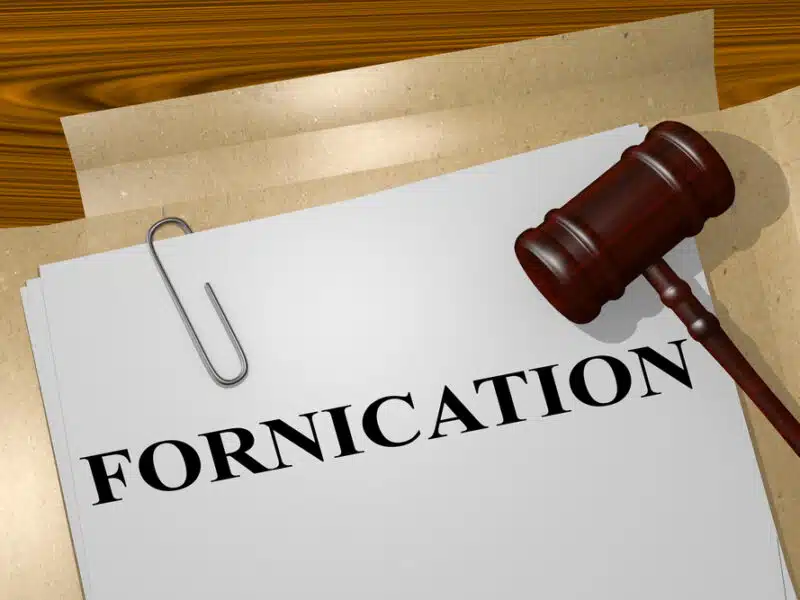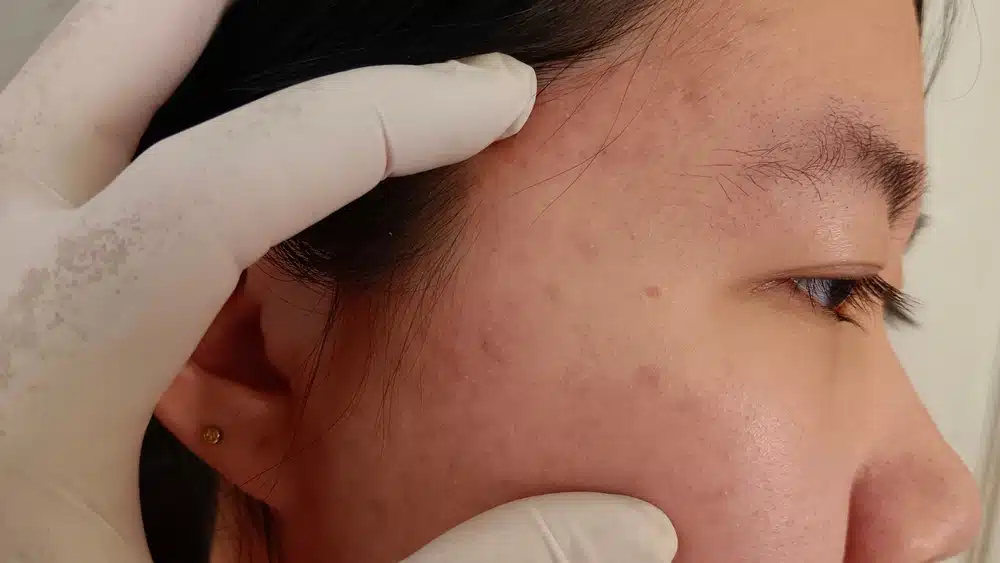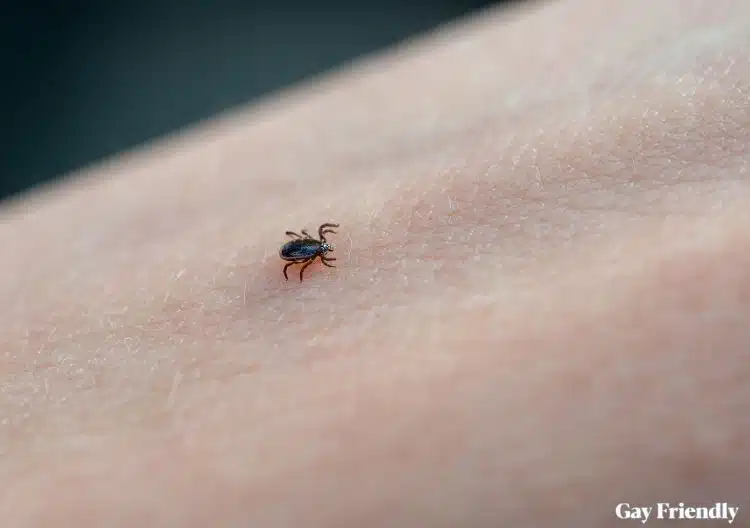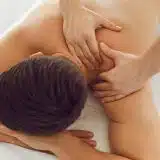Tips and Tricks What is Skin Crawling (Formication), and How to Stop it?

Understanding Skin Crawling Sensations and Effective Strategies for Relief
15th May, 2023
Have you ever experienced a sensation of something crawling, itching, or prickling on your skin, even when there’s nothing there? This feeling is known as skin crawling or formication.
It can be incredibly uncomfortable and unsettling; for some, it can even interfere with their daily lives.

But don’t worry; there are ways to alleviate this sensation. In this article, we’ll discuss what causes skin crawling and some tips on how to stop it so that you can feel more comfortable and at ease.
Why Does Formication Occur?
Formication, characterized by abnormal sensations of crawling, itching, or prickling on the skin, may stem from various causes.
It can manifest as a standalone condition referred to as a primary delusional infestation or a symptom of an existing mental or physical ailment known as a secondary delusional infestation.
While mental health issues are the primary cause for 75% of formication cases, the remaining instances can result from certain drugs or medications.
Experts propose that the root cause of formication is an imbalance of dopamine in the brain. Processes that disrupt dopamine levels can trigger abnormal sensations, including formication.
Mental Disease and Formication
A form of hallucination is formication. This indicates that people experience an itchy, bug-like sensation on or beneath their skin. They could also develop skin injuries from bathing or itching, such as sores or wounds.
This is a psychotic sign of schizophrenia, just like other hallucinations. But the most typical psychological problems connected to formication are sadness and anxiety. Additionally, people with OCD, PTSD, and bipolar illness exhibit it.
Recommended:
How to Spot Skin Cancer?
Use of Drugs and Medications With Formication
Formication can also result from recreational drug usage. The most prevalent culprits are cocaine and methamphetamine, which gave rise to the phrases “cocaine bugs” and “meth mites.”
Formication might occur in as many as 50% of users of these medications. This illness can also appear in those who are going through alcohol or drug withdrawal.
But it goes beyond mere intoxicants for fun. Prescription drugs can also result in formication:
- Methylphenidate (Ritalin), an ADHD drug
- MAO inhibitor antidepressants, such as phenelzine and pargyline
- Amantadine or anticholinergic drugs (such as trihexyphenidyl and benztropine) are examples of pharmaceuticals used to treat Parkinson’s disease.
- Corticosteroids
- Antibiotics like ciprofloxacin and clarithromycin
Does Formication Ever End? What Is the Procedure?
The condition of formication might be difficult to manage. It could be challenging to accept the suggested treatment if they don’t think their symptoms are hallucinations.
For individuals who are willing to assist, there are several choices available. Often, the first step is to use drugs to treat the symptoms.

Both primary and secondary formication can be successfully treated with antipsychotic medications. Older antipsychotics like pimozide (Orap) were favored, but newer antipsychotics with superior effectiveness, like risperidone (Risperdal) or olanzapine (Zyprexa), are now preferred.
If depression is the underlying cause of the disease, antidepressant medicines may also be helpful.
In addition to psychiatric drugs and wound care, the treatment may involve stopping drug use, stopping or lowering the dosage of any problematic drugs, recommending drugs to lessen withdrawal from alcohol or opioids, attending to any underlying medical conditions, and offering psychological support and counseling.
Treatment and Diagnosis of Formication
Since no precise test proves its presence, diagnosing and treating formication can be difficult. Your healthcare professional will review your medical history, current medications, and symptoms.
Even if you abuse alcohol or use illegal substances, being honest and upfront with your healthcare professional is essential.
The fundamental reason determines the formication therapy strategy. Alternative medications may be considered if a medication’s adverse effects cause the symptoms.
Once the body detoxifies after ceasing drug usage, formication brought on by drug use or withdrawal frequently disappears.
Medication and counseling are two ways to manage mental health issues. While antiviral drugs can help cure shingles, vitamins or hormone replacement treatment can assist in controlling the symptoms of menopause.
Formication brought on by degenerative diseases like Parkinson’s, Lewy body dementia, lupus, or peripheral neuropathy from untreated diabetes, however, may be permanent.
Consequences of Formication
Formication is frequently related to an itch that causes scratching. Over-scratching can cause skin irritation and create sores, which leave the skin vulnerable to infections.
Formication may also result in the following additional issues:
- Irritability
- trouble sleeping
- Inability to concentrate
- a lower standard of living
- Fatigue
- Depression
- Anxiety
- Body pains
How to Stop Fornication (Skin Crawling)
Skin crawling, also known as formication, can be a challenging symptom to manage. The approach to stopping skin crawling depends on the underlying cause of the symptom.
Here are some tips to help manage skin crawling:
- Identify and Treat the Underlying Cause – The first step in stopping skin crawling is to identify the underlying cause of the symptom. Formication can be a symptom of various conditions such as drug use, menopause, or mental health issues. Addressing the root cause may help alleviate the sensation.
- Seek Medical Attention – If you experience skin crawling, it is crucial to seek medical attention promptly. A healthcare provider can help determine the cause of the symptom and develop a treatment plan tailored to your specific needs.
- Avoid Drugs and Alcohol – Recreational drugs and alcohol can trigger skin crawling. Stopping or limiting their use may help reduce the intensity or frequency of the symptom.
- Manage Stress and Anxiety – Stress and anxiety can exacerbate skin crawling. Learning relaxation techniques, such as deep breathing, meditation, or yoga, can help manage stress and anxiety.
- Use Over-The-Counter Remedies – Over-the-counter medications such as antihistamines or pain relievers may help alleviate the itching sensation associated with skin crawling.
- Practice Good Skin Hygiene – Scratching the skin can irritate and increase the risk of infection. Maintaining good skin hygiene, such as using gentle soaps and avoiding harsh chemicals, can help prevent skin damage and reduce skin-crawling sensation.
Stopping skin crawling (formication) requires identifying and treating the underlying cause, seeking medical attention, avoiding drugs and alcohol, managing stress and anxiety, using over-the-counter remedies, and practicing good skin hygiene.
If you experience skin crawling, seeking medical attention and working with a healthcare provider to develop a personalized treatment plan is essential.
FAQs
How do I stop my skin from crawling?
Address underlying conditions, manage stress, and consider topical treatments for relief.
What is the cause of crawling sensation on the skin?
Possible causes include stress, anxiety, drug side effects, or neurological issues.
Why is my skin so itchy, feels like bugs crawling?
Itchy skin with a crawling sensation can be due to various factors like dryness, allergies, or nerve-related conditions.
What is the cause of formication?
Formication, the sensation of bugs crawling on the skin, can be caused by drug use, anxiety, or nerve disorders.
What is the best antihistamine for formication?
Discuss with a doctor for appropriate antihistamine options based on individual needs and medical history.
The Bottom Line
Formication is an unpleasant symptom that can lower a person’s quality of life. It might develop as a primary delusional infestation or a secondary manifestation of a comorbid medical or psychological condition. Formication can result in skin irritation, open sores, and infections, even while it may cure on its own or with therapy for the underlying cause.
Various therapeutic options, including medication and psychological support, are available to assist in managing the symptoms and enhance the person’s general well-being.
It’s critical to get medical help immediately if you or someone you know is experiencing formication or other unusual symptoms to identify the underlying reason and receive the proper care.
Recommended:
How to Remove Skin Tags? What Causes Them and Getting rid in One Night















